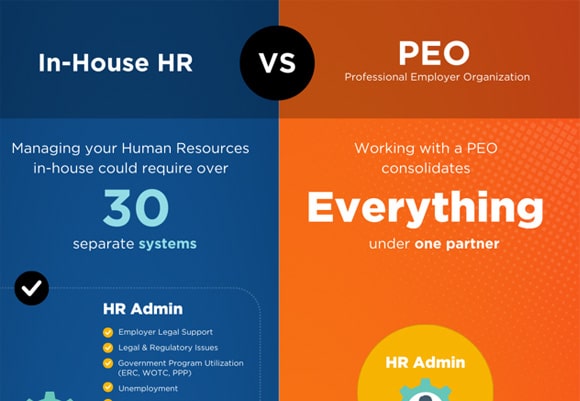Running a business involves juggling a multitude of responsibilities, including managing human resources. As a business owner, you may often find yourself overwhelmed with the complexities of HR tasks, from payroll management to employee benefits administration. This is where a Professional Employer Organization (PEO) can come to your rescue.
By partnering with a PEO, businesses can gain access to a range of HR solutions that can drive growth, success, and save time and money. However, like any business decision, it is important to carefully consider the pros and cons before making a decision.
In this article, we will delve into the advantages and disadvantages of partnering with a PEO for your HR needs.
What is a PEO?
A Professional Employer Organization (PEO) is an outsourced HR solution that provides comprehensive HR services to businesses. When a business partners with a PEO, they essentially enter into a co-employment relationship. This means that the PEO becomes the employer of record for tax purposes, while the business remains the employer for day-to-day operations. The PEO takes on various HR responsibilities, such as payroll processing, benefits administration, compliance management, and risk management, allowing the business to focus on core operations and strategic growth.
Cons of Outsourcing your Human Resources to a PEO
While partnering with a PEO can offer many benefits, it is important to consider the potential drawbacks before making a decision. Let’s start with some of the cons of outsourcing your human resources to a PEO.
Loss of control
When you partner with a PEO, you are essentially sharing employer responsibilities. This means that some decision-making authority and control over HR processes may be relinquished to the PEO. This loss of control can be challenging for businesses that prefer to have full autonomy over their HR functions.
Compatibility and fit
Not all PEOs are created equal, and finding the right fit for your business can be a challenge. It is important to thoroughly research and vet potential PEO partners to ensure that they align with your company culture, values, and goals. Failure to find the right fit can result in a strained relationship and dissatisfaction with the services provided.
Potential for miscommunication
Communication is key in any business relationship, and when working with a PEO, there is an increased risk of miscommunication. As the PEO is responsible for managing various HR tasks, it is crucial to establish clear channels of communication and ensure that there is a shared understanding of expectations and goals. Miscommunication can lead to errors, delays, and frustration.
On the other hand, partnering with a PEO may improve communication by eliminating the need for other services and companies, since PEOs consolidate the responsibilities that would typically require many third-party vendors.
Cost considerations
While partnering with a PEO can save businesses time and money in the long run, it is important to carefully consider the costs associated with outsourcing HR. PEO services often come with fees, and these costs can vary depending on the size of the business and the specific services required. It is important to weigh the potential cost savings against the fees charged by the PEO to ensure that the partnership is financially beneficial.


